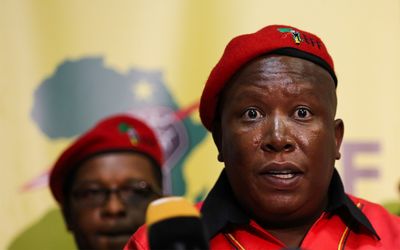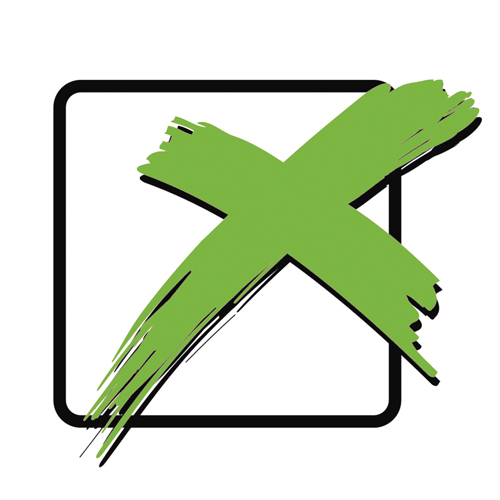PROVINCIAL legislature dynamics look set to change in Limpopo, KwaZulu-Natal, Eastern Cape, Northern Cape and the North West as the Democratic Alliance (DA) and the Economic Freedom Fighters (EFF) take on the mantle of the largest opposition parties in those provinces.
By 1pm, when just more than 50% of the estimated 72% turnout of the 25-million registered voters had been counted by the Electoral Commission of SA (IEC), the numbers showed the displacement of the largest opposition parties in these five provinces.
The DA, which retained control of the Western Cape, was poised to assume the mantle of the largest opposition party for the first time in KwaZulu-Natal and the Eastern Cape. It is set to retake the position as the largest opposition party in the Northern Cape and the North West Province.
The EFF is set to displace the DA from that position in Limpopo, taking over the role as the official opposition in the home province of its leader, Julius Malema.
Preliminary IEC results showed that in the Eastern Cape, the African National Congress (ANC) had 979,578 votes to the DA’s 189,083 votes. The Congress of the People (COPE), which was previously the largest opposition party in that province, had achieved just 15,429 votes and newcomer EFF had 42,903.
In KwaZulu-Natal, the ANC had 274,523 votes to the DA’s 192,160, meaning it had displaced the Inkatha Freedom Party (IFP) as the largest opposition party so far in the counting process, with the latter having won 109,247 votes.
The National Freedom Party, which split from the IFP two years ago, had 108,842 votes and appeared to be taking voters away from the IFP.
In Limpopo, the ANC had 274,523 votes, the EFF had 59,449 and the DA 44,205. Agang SA, whose leader, Mamphela Ramphele, also comes from that province, had so far only secured 1,607 votes.
In the Northern Cape, the ANC had 251,217 votes and the DA had 98,004 votes, displacing COPE, which had 14,752 votes.
Reactions from politicians from the various parties, who asked not to be named yet as the counting was still continuing, ranged from cautiously optimistic to disappointed.
A DA MP said: "How this will all pan out in the provincial legislatures is still to be seen. We have learnt that while a ruling party can set the agenda, the opposition party can set the tone of the debate around the agenda."
The MP said the party was still eagerly awaiting the results from metropolitan areas such as Tshwane, Johannesburg, Port Elizabeth, Durban and Cape Town.
A COPE politician said: "We are highly disappointed, especially with the Eastern Cape results."

Economic Freedom Fighters leader Julius Malema. Picture: THE TIMES
PROVINCIAL legislature dynamics look set to change in Limpopo, KwaZulu-Natal, Eastern Cape, Northern Cape and the North West as the Democratic Alliance (DA) and the Economic Freedom Fighters (EFF) take on the mantle of the largest opposition parties in those provinces.
By 1pm, when just more than 50% of the estimated 72% turnout of the 25-million registered voters had been counted by the Electoral Commission of SA (IEC), the numbers showed the displacement of the largest opposition parties in these five provinces.
The DA, which retained control of the Western Cape, was poised to assume the mantle of the largest opposition party for the first time in KwaZulu-Natal and the Eastern Cape. It is set to retake the position as the largest opposition party in the Northern Cape and the North West Province.
The EFF is set to displace the DA from that position in Limpopo, taking over the role as the official opposition in the home province of its leader, Julius Malema.
Preliminary IEC results showed that in the Eastern Cape, the African National Congress (ANC) had 979,578 votes to the DA’s 189,083 votes. The Congress of the People (COPE), which was previously the largest opposition party in that province, had achieved just 15,429 votes and newcomer EFF had 42,903.
In KwaZulu-Natal, the ANC had 274,523 votes to the DA’s 192,160, meaning it had displaced the Inkatha Freedom Party (IFP) as the largest opposition party so far in the counting process, with the latter having won 109,247 votes.
The National Freedom Party, which split from the IFP two years ago, had 108,842 votes and appeared to be taking voters away from the IFP.
In Limpopo, the ANC had 274,523 votes, the EFF had 59,449 and the DA 44,205. Agang SA, whose leader, Mamphela Ramphele, also comes from that province, had so far only secured 1,607 votes.
In the Northern Cape, the ANC had 251,217 votes and the DA had 98,004 votes, displacing COPE, which had 14,752 votes.
Reactions from politicians from the various parties, who asked not to be named yet as the counting was still continuing, ranged from cautiously optimistic to disappointed.
A DA MP said: "How this will all pan out in the provincial legislatures is still to be seen. We have learnt that while a ruling party can set the agenda, the opposition party can set the tone of the debate around the agenda."
The MP said the party was still eagerly awaiting the results from metropolitan areas such as Tshwane, Johannesburg, Port Elizabeth, Durban and Cape Town.
A COPE politician said: "We are highly disappointed, especially with the Eastern Cape results."














 News, views and analysis of South Africa's national and provincial elections
News, views and analysis of South Africa's national and provincial elections







Change: -0.47%
Change: -0.57%
Change: -1.76%
Change: -0.34%
Change: 0.02%
Data supplied by Profile Data
Change: -1.49%
Change: -0.24%
Change: -0.47%
Change: 0.00%
Change: -0.41%
Data supplied by Profile Data
Change: 1.20%
Change: 1.51%
Change: 1.14%
Change: 0.73%
Change: 1.28%
Data supplied by Profile Data
Change: 0.10%
Change: -0.73%
Change: -0.07%
Change: -0.69%
Change: -0.42%
Data supplied by Profile Data